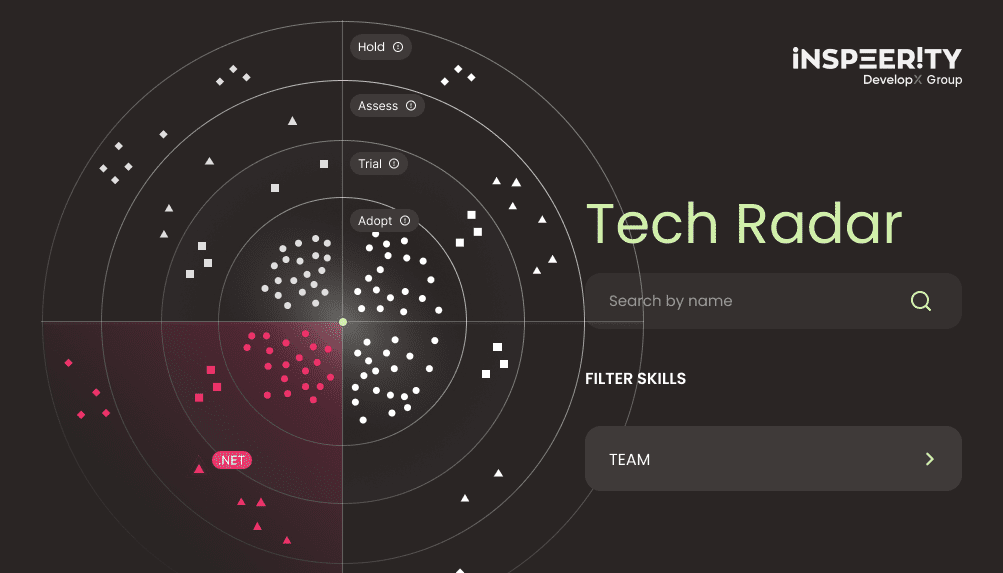AI isn’t just a buzzword. It’s a real driver of change in manufacturing services, but where can AI make an impact across your business? In today’s blog, I will take you through the future of manufacturing and how AI can improve everything from decision-making to after-sales care, and inventory management and how it optimizes processes.
AI across the business value chain
Most of the time when we are talking about artificial intelligence software services, we imagine little robots controlling the floor. But it can impact not just work on the shop floor but other areas. Let’s see where AI solutions can make an impact.
Did you know?
The global market for AI in manufacturing was valued at USD 1.82 billion in 2019 and is projected to reach USD 9.89 billion by 2027, with a compound annual growth rate (CAGR) of 24.2%. This growth is driven by the transformative impact of Industry 4.0, which integrates technologies such as artificial intelligence, the Internet of Things (IoT), and advanced automation, leading to smarter manufacturing practices.
Sales and marketing
AI analyzes customer data to predict future buying behaviors, enabling businesses to personalize their marketing and sales strategies effectively. This targeted approach can significantly increase customer retention rates. AI-powered chatbots provide round-the-clock customer service, offering instant responses to inquiries and improving overall customer engagement.
Research & Development (R&D)
AI rapidly processes and summarizes extensive research materials, significantly reducing the time required for literature review and analysis. This accelerates the R&D process, allowing for quicker innovation cycles. AI also aids in making complex R&D processes more transparent and understandable, building better communication and decision-making among stakeholders.
Production
AI in production processes is used for predictive maintenance, identifying potential equipment failures before they occur. This reduces downtime and improves supply chain management along your production lines. AI is also employed in the design process, creating innovative and efficient product designs that may not be immediately apparent through traditional methods.
Reducing costs
AI improves Overall Equipment Effectiveness (OEE) by monitoring equipment shortages or quality issues and triggering automatic failure alerts. Companies can reduce unplanned downtime by 20% to 40% with AI solutions. The oil company Shell leveraged AI to monitor 10,000 pieces of equipment, using over 11,000 algorithms to gather data from more than 3 million sensors. This approach resulted in more streamlined and productive operations, with the ability to detect equipment degradation before it leads to emergency shutdowns.
Services
In the service sector, AI utilizes image recognition to quickly identify and resolve product issues. This enhances the efficiency of customer support, leading to improved customer satisfaction and reduced time in handling service requests.
Supply chain
AI in supply chain management forecasts potential disruptions, such as unexpected demand changes or supplier delays. This helps in demand forecasting as it automatically adjusts operational plans to mitigate these risks. This means smoother manufacturing operations and reduces the likelihood of inventory shortages or overages. In short full supply chain optimization.
AI technologies and their applications
It’s up to your software partner to help you through the maze of different AI models. But it doesn’t hurt to have an idea of the different models and how they work to boost your processes.
- Analytic AI – In manufacturing, Analytic AI optimizes product design through virtual simulations and enhances marketing strategies by analyzing data specific to manufacturing trends. By analyzing demand patterns AI can help to suggest solutions and increase efficiency.
- Text AI – This AI streamlines manufacturing by summarizing technical and compliance documents quickly and efficiently and improves customer service in manufacturing by analyzing feedback for better communication.
- Functional AI – Functional AI is crucial in manufacturing for conducting precise quality checks on assembly lines and predicting maintenance needs of manufacturing equipment, thus maintaining production flow along critical manufacturing processes.
- Conversational/Interactive AI – Used in manufacturing customer service, this AI provides instant, accurate responses to queries about manufacturing products and processes.
- Explainable AI -In manufacturing, Explainable AI ensures clarity and compliance in complex data analysis and decision-making, particularly in supply chain management and production planning.
- Generative AI -This AI along with machine learning drives innovation in manufacturing by generating new product designs and optimizing existing manufacturing processes, also aiding in predictive maintenance strategies. This helps in lean manufacturing.
Is AI the future?
AI is going to be more and more important for you to stay ahead of the competition. However, it’s not the future. It’s the now. I believe AI is already playing a crucial role and is likely to become increasingly integrated into various sectors, influencing how we work, communicate, and solve complex problems. Already many companies are using AI to change the way they work.
The BMW Group
BMW Group has integrated AI into its manufacturing processes to enhance efficiency and quality. Their AI systems are used for predictive maintenance, and data analytics, ensuring machinery is serviced before issues arise, thus minimizing downtime. This proactive approach leads to smoother operations and cost savings and is an example of how AI implementation helps in data-driven decision-making.
Read more about BMW Group’s AI application
Airbus
Airbus employs artificial intelligence for generative design in aircraft manufacturing. Their AI algorithms assist in creating more efficient and innovative designs for aircraft parts, contributing to lighter and more fuel-efficient aircraft. This application of AI not only enhances design capabilities but also promotes sustainability in aviation and boosts quality control.
Explore Airbus’s AI-driven generative design
Toyota
Toyota is using AI to offer customization in car manufacturing at scale. By using AI-driven automation, Toyota can produce vehicles tailored to individual customer preferences without compromising production efficiency across its supply chains. This approach enhances customer satisfaction and showcases the potential of AI in mass customization.
Conclusion
In exploring AI’s role across the manufacturing sector, it’s without doubt that it’s going to make a big impact. For you, the journey to integrating AI can start now. Use AI to enhance your processes, from sales and marketing to R&D, production, and beyond.
Look at BMW Group, Airbus, and Toyota – they’ve already taken the leap, using AI for everything from predictive maintenance to innovative design and customization. These aren’t just success stories; they’re blueprints for how you can apply AI in your operations and production systems.
Start small, identify key areas for AI integration, and gradually expand. By doing so, you’ll not only keep pace with industry leaders but also unlock new levels of efficiency, innovation, and customer satisfaction. The time to act is now – harness AI and transform your manufacturing landscape.
How do you see AI transforming your manufacturing processes? Get in contact today for a consultation on how implementing AI can boost your business.




